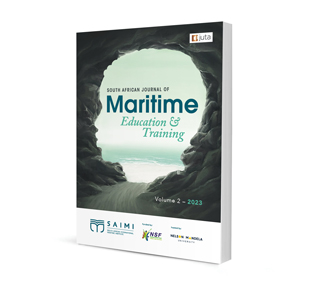
Maritime skills development in KwaZulu-Natal: 2022
Authors: Leticia A Grimett and Sihle Mzileni
ISSN: 2790-783X
Affiliations: Honorary Research Fellow at the University of KwaZulu-Natal School of Law, South African International Maritime Institute
Source: South African Journal of Maritime Education and Training, Volume 2 Issue 1, p. 35-56
https://doi.org/10.47348/SAJMET/2023/i1a3
Abstract
The Operation Phakisa: Oceans Economy mandate, in line with the United Nations (UN) Sustainable Development Goals, calls for the extension of the benefits of maritime sector development to disadvantaged rural communities. This mandate can only be realised if the rural communities can actively partake in the sector. Research has shown that the coastal rural communities were unaware of the maritime sector, and few were prepared to partake in the maritime value chain. This maritime skills audit sought to determine the skills required by the maritime sector and the ability of the rural community to provide them. The research also sought to determine the geographical and educational gaps within the sector. Initially, the intention of the research was, to discover specific areas where skills shortages and education gaps were found. While the Protection of Personal Information (POPI) Act proved to be a limiting factor, the study still uncovered the structural issues affecting the education and training of rural learners. The maritime sector is primarily urban. Maritime training is also done within the urban sectors. While it should be a simple matter of the rural learners moving to urban centres to study, the deficiencies in the education of the rural populations have created a major systemic bottleneck. This paper provides the results of the maritime business audit, together with the issues facing the rural education sector and the obstacles they present.